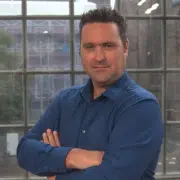Is the EU’s “Global Gateway” the answer to China’s BRI? Isn’t it time for a Dutch military space strategy? Should European states invest in conventional deterrence? And how do we secure the supply of critical raw materials? Find out, in your beloved HCSS Digest!
China & Taiwan
“The engines in some Chinese warships are German-made. The hypersonic missile has been tested using American chips. We must stop this ‘double-sided’ use of our technology,” strategic analyst Joris Teer, author of the recent HCSS report “China’s Military Rise” commented in Financieele Dagblad. “We also don’t allow Iranian PhD students in the Netherlands to study our nuclear technology. We benefit from our open economy, but faced with a rapidly emerging authoritarian superpower, we have to put some limits on that openness.”
Is the EU’s “Global Gateway” infrastructure initiative the ostensible answer to China’s geo-economic Belt and Road Initiative? 300 billion euros versus 3.7 trillion dollars – Friso Stevens, HCSS China and East Asia specialist, expressed his doubts on BNR Nieuwsradio : it is unlikely to be a serious rival to the BRI, as a whole range of different actors with different interests on the European side will find rivaling them a well-oiled party-state in which state-owned and semi-private companies and banks follow a grand strategic plan.
Rob de Wijk is uncharacteristically less pessimistic on RTL Nieuws : “I always hear a lot of remarks that we can’t make a fist against the Chinese. Well, this is played very cleverly by Europe. With this strategy, the EU can better control those supply chains and collaborate with other countries in a targeted way.”
Taiwan feels the hot breath of China. To garner support, Harry Tseng, Taiwan’s deputy foreign minister, toured Europe. BNR De Wereld’s Bernard Hammelburg met with him at the HCSS for an online interview this week. Although the Netherlands does not recognize Taiwan – like most countries – this does not mean, according to Tseng, that the Netherlands cannot further strengthen its ties with Taiwan.
“Companies must take into account that they’ll be used for political ends, and can become a plaything amid geopolitical tensions,” Rob de Wijk warned at a seminar about developments in the economic relationship between China and Europe this week.
Climate, Energy & Resources
“We just don’t have sufficient supply of critical raw materials for the economy and the energy transition.” HCSS strategic analyst Irina Patrahau discusses the geopolitics of energy and natural resources on podcast Wereldmachten (starting at 15 minutes, or click on this Spotify link).
Space
Satellites have become an indispensable part of the military arsenal, HCSS expert Patrick Bolder explained in the Financieele Dagblad. “But in the Netherlands it is suspiciously quiet on the policy front with regard to this new domain of warfare. It is time to change that.”
Few realize it, but space is potentially one of the most important battlegrounds in the future, according to HCSS analysts Patrick Bolder and Tim Sweijs. And it’s about time our Defense formulated a strategy for that domain, they commented in De Telegraaf:
- According to Sweijs, the recent skirmishes are signs of a new space race between superpowers USA, Russia and China. A race in which, contrary to the 1960s, it is not about prestige, but about major economic and strategic interests. But where there are economic interests, conflicts lurk. The Netherlands must make work of military space, just as we are active at sea, in the air and on land.
- “Especially because a growing number of nations have anti-satellite weapons. Not only the US and Russia, but also countries like India and China, for example,” Bolder added.
- Star Wars in a Galaxy not so far far away? Would you like to know more about the Space Race 2.0? Then by all means, read our “Strategic Alert: Towards a Space Security Strategy” by Hugo van Manen, Tim Sweijs and Patrick Bolder.
Geopolitics & Governance
“Brussels needs to think more about two things: how to lift sanctions and the bottlenecks in the global economy that the EU is exposed to”, explains guest author Dawid Walentek in an op-ed for HCSS on the strategy and pitfalls of the EU Economic Sanctions, ahead of the debate on the EU Anti-Coercion Instrument.
Last week, more than 400 migrants who wanted to cross the Polish border were flown back to Baghdad from Belarus, with more flights to follow. According to Rob de Wijk, this is proof that the Polish ‘pushbacks’ are working, he commented on NPO Radio 1’s Dit Is De Dag: “This has nothing to do with normal migration.”
Covid-19 is a shock to healthcare, but also a blow to political stability, security and the economy. Apparently the Dutch government wants to paint the optimistic picture that we will get through it before Christmas. That’s not crisis management, but gambling, Rob de Wijk writes in his column for Trouw.
Defense & International Security
European states should invest in conventional deterrence, argues HCSS analyst Paul van Hooft in newspaper NRC. By closing gaps in the escalation ladder, further nuclearization of European security by the US and Russia can be controlled.
It’s been a year since the conflict between Azerbaijan and Armenia over Nagorno-Karabakh ended. Though seemingly far away, what can it teach us about future conflict and the threats of UAVs and missiles? Find out in the upcoming HCSS report on Integrated Air and Missile Defence by Paul van Hooft and Lotje Boswinkel.


